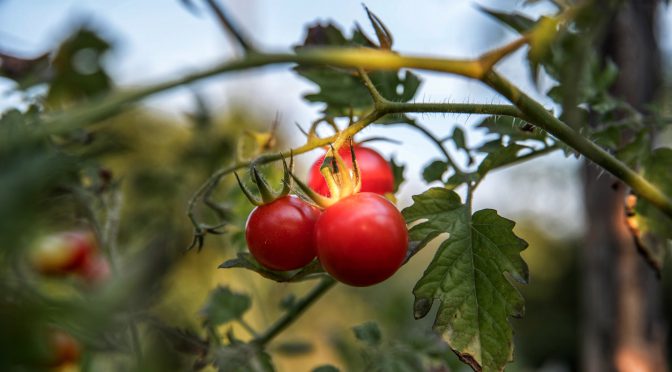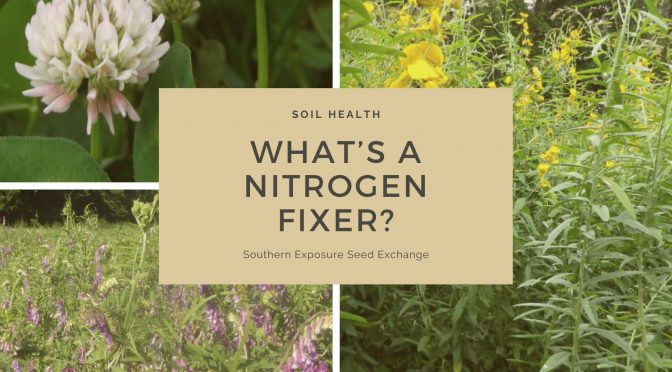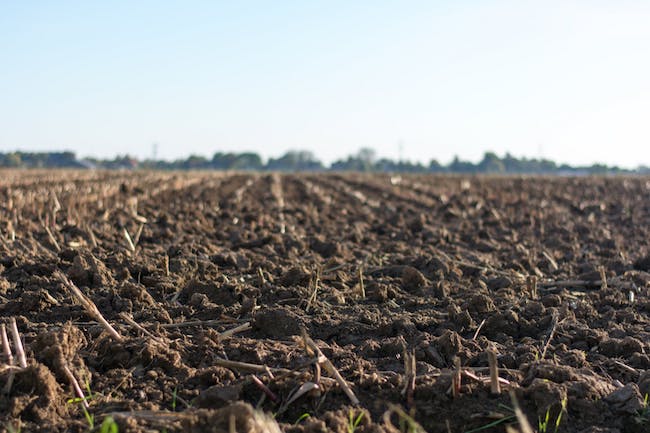Spotting nutrient deficiencies in your plants can be challenging, especially if you’re new to gardening. Here are what a few common deficiencies look like and how to correct them.
Soil Nutrients
Nutrients in the soil can be divided into two categories macronutrients and micronutrients/trace minerals.
The first category, macronutrients, comprises primary nutrients nitrogen, phosphorus, and potassium and secondary nutrients sulfur, magnesium, and calcium. If you think your plant has a nutrient deficiency, these are the likely culprits.
The second category, known as micronutrients or trace minerals, includes boron, chlorine, copper, iron, manganese, molybdenum, and zinc. While these are still important to plant health, they’re needed in such small quantities that it’s less likely your plant is deficient in one of these micronutrients.
You can read more detailed descriptions of what all of these nutrients do in our post, Understanding Soil Tests.
Nitrogen Deficiency
A nitrogen-deficient plant will grow slowly and lack vigor. The leaves may turn pale and yellow before dropping off, with the oldest leaves dropping first.
Note that it’s easy to overdo it when adding nitrogen, especially if you’re using chemical fertilizer. Adding too much nitrogen will cause lush, dark green foliar growth at the expense of fruit and flower production.
There are many ways to add nitrogen to your soil. While you shouldn’t directly apply it to plants, animal manure is a good choice if you have access to it. Compost will also add some nitrogen, or you can add seaweed or kelp meal, fish emulsion, bone meal, coffee grounds, soybean meal, or cottonseed meal. Using legume cover crops also helps to increase your soil’s nitrogen levels.
Phosphorus Deficiency
A plant that is deficient in phosphorus will also lack vigor and may be stunted. It might drop fruit before it’s ripe or not produce fruit at all. The lower leaves may appear red or purple.
You can add phosphorus to your soil using rock phosphate, greensand, compost, or bonemeal.
Potassium Deficiency
Potassium deficiency will probably be most apparent in your plant’s leaves, which may be mottled or curled or have brown edges. The plants will also be weak and have stunted root growth. They will likely be more susceptible to disease and pest issues.
Good potassium sources include manure, compost, seaweed or kelp meal, potash, granite dust, greensand, and wood ashes.
Sulfur Deficiency
While sulfur is a macronutrient, a sulfur deficiency is much less common. Signs include stunted growth and pale, yellow leaves.
Add sulfur with gypsum, compost, or sulfur.
Magnesium Deficiency
If your plant is deficient in magnesium, you may notice poor flower and fruit production, stunted growth, and dropping leaves. Leaves may also appear mottled with yellow/white patches or purple/brown patches between the leaf veins.
To correct a magnesium deficiency, add limestone, manure, compost, or greensand.
Calcium Deficiency
Calcium deficient plants may die back or have buds that die. Their leaves will likely appear burnt, curling, or have necrotic leaf margins. You may also notice issues like blossom end rot and other signs of tissue necrosis.
Use oyster shells, eggshells, limestone, gypsum, or fishmeal to add calcium to your soil.
Notice how similar a lot of these symptoms are?
If you’re having problems with nutrient deficiencies, the best advice is always to get your soil tested. It isn’t complicated or expensive and will tell you precisely what you need.
It will also tell you what your soil’s pH is. Soil pH can affect plants’ nutrient uptake and may cause deficiencies even if your soil is otherwise fine.
If your soil test comes out fine, your plants may be struggling due to over or underwatering or disease issues.
How do I prevent deficiencies?
The first step you should take is to develop a garden rotation plan that includes cover crops. They’re excellent for preventing erosion and adding nutrients to your soil.
Yearly applications of good quality compost can provide a wide range of nutrients to your soil.



